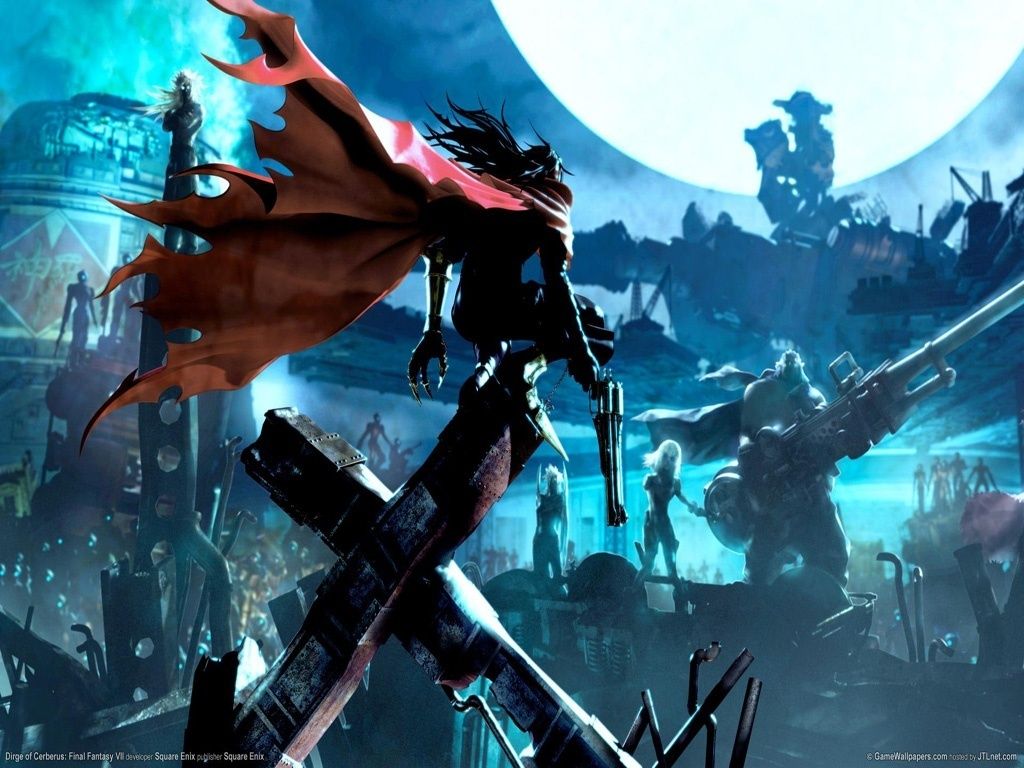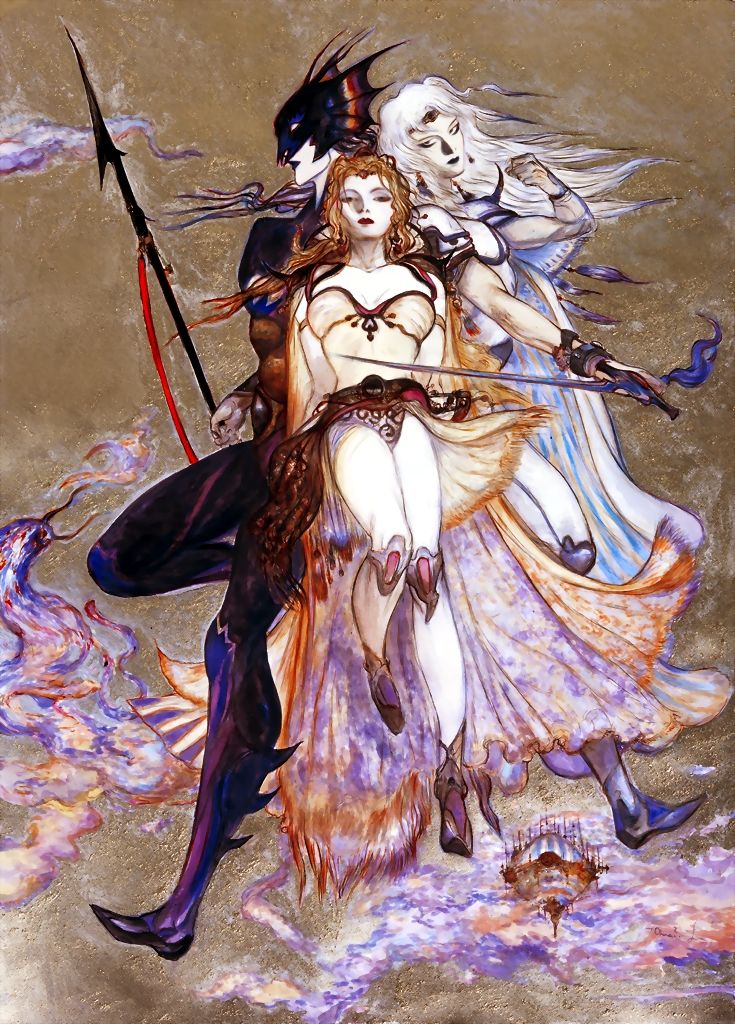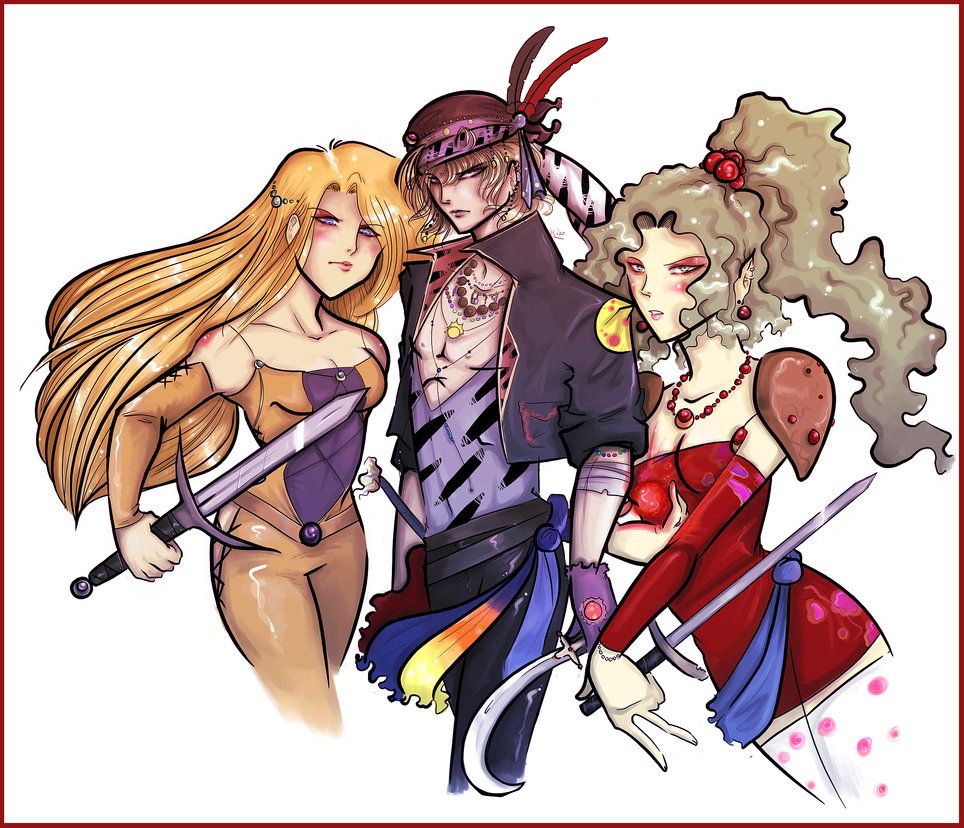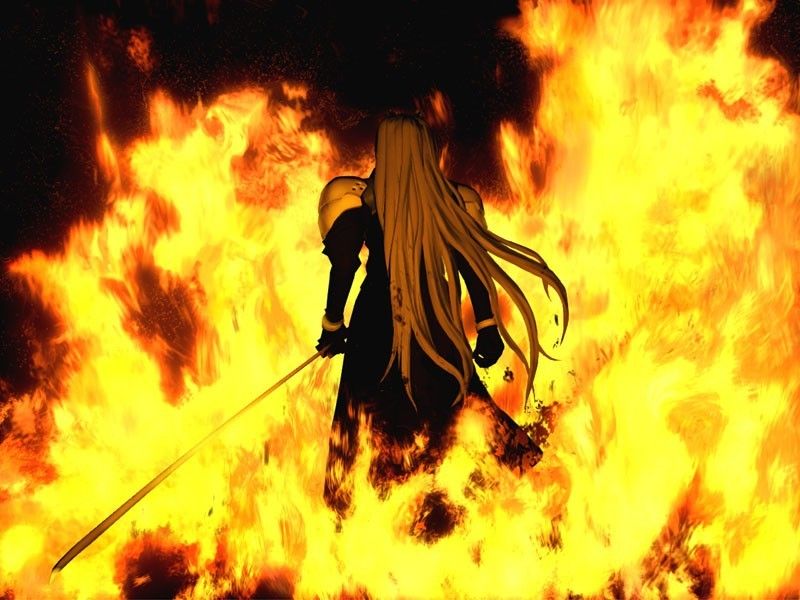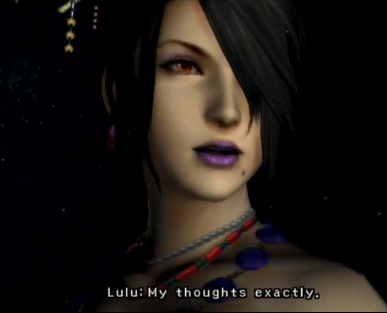One of the things I love about the trends gaming has taken over the last few years is the emphasis on morality and making tough decisions. I feel it adds a humanizing aspect to many games that may otherwise be hard to identify with due to subject matter, setting, characters, and so on and so forth. Talking about morals in video games could take a lifetime, so I'm going to attempt to narrow down the subject just a little.
Redemption. The dictionary defines it as deliverance, rescue, or atonement for guilt. It's a topic that I feel strikes a chord with many people, as it's essentially a protectorate: actions in the past can be "made up" for. No one is perfect, and it's nice to know that one mistake doesn't necessarily have to define the rest of your life.
Spoilers ahead. You have been warned.
As such a human quality, it is a theme quite often found in games where character development and history play a large part in the plot, regardless of how much of the game itself is storyline-based. As such, anyone who knows anything about Final Fantasy can probably guess how large a part redemption plays in their stories.
In Final Fantasy IV, the main character, Cecil, starts off as a dark knight class warrior who commits rather heinous acts at the orders of his king. Fairly early on in the game he makes the switch from mindless murder-drone after being ordered to kill a child, one of the only survivors of a massacre. It's nice to know even evil can have standards. He ends up defying his orders, doing a complete 180-degree change both ideologically and physically, and spending the rest of the game making up for his earlier actions and saving the world.
Kain, the poor, confused dragoon, Cecil's character foil and part-time antagonist, spends most of the game jumping between attempting to redeem himself and causing new chaos which then requires further redemption. Mind-control or not, the poor guy just isn't sure what side he's actually on. Kain, who as a side note is one of my favorite characters ever, first falls victim to the incredibly-human emotion of jealousy, prompted by a love triangle between he and Cecil over Rosa, a childhood friend of both men.
As any good soap opera (wait, is that an oxymoron?) as well as Moulin Rouge will tell you, jealousy will drive you mad. Kain spends half the time out of his mind and doing terrible things such as kidnapping Rosa and tying her up in a dungeon. He then "comes to his senses" and travels with the party to try and regain their trust, all the while feeling terribly guilty. Then five minutes later, whoops, mind control again, and he has even more to make up for!
In Final Fantasy IV: The After Years, a mysterious man helps Cecil and Rosa's son, Ceodore (no, that's not a typo), saving his life and accompanying him on his journey. It turns out this mysterious man is indeed Kain Highwind, who still feels guilty over his actions in the original game and does his best to make up for them by watching over his friends' son. Yet once again, poor Kain finds out that his dark side has taken a life of its own and has kidnapped Rosa, again. He must defeat his dark self in order to make things right again. He finally triumphs over his dark side and redeems himself once and for all.
Final Fantasy VI features two females, Celes and Terra, who once worked for a violent government and did terrible things in the name of Emperor Gesthal, though only one of them did so by choice. The game is spent with the 14-memeber party working to take down Kefka, the evil maniacal clown who turned out to be behind it all. Celes' loyalty is questioned several times during the game, due to the fact that she had been serving by choice rather than Terra, who was under the control of the slave crown, a mind control device, the whole time.
Likewise, Locke Cole, lovable "treasure hunter" of the party, spends the game attempting to redeem himself after his girlfriend's death, though it wasn't technically his fault. Rachel was killed at the hands of the empire during a raid of their village, yet he still feels that by failing to protect her he assumes the responsibility and guilt of her death.
The next logical step is Final Fantasy VII. It can be hard to bring up the topic without being accused of fanboyism by some and not giving it the credit it deserves by others, so I shall attempt to keep my comments as bipartisan as possible. Cut me some slack, dear readers.
Now, one could argue that the main overreaching theme of the entire Final Fantasy VII compendium is redemption. I mean, it's not like they used a song with that exact title as the ending theme of Dirge of Cerberus or anything.
http://www.youtube.com/embed/LXp0v93ZRTs?rel=0
VII is actually a great example of one of the defining facets in redemption: guilt. Sephiroth had a pretty darn good reason to go completely crazy. Granted, his motivations and judgement over whether he was truly evil or just misguided is the source of many, many arguments among the fanbase. Being raised as an orphan, only to later find out your were raised only to be a monstrous killing machine, then having the closest thing you've ever had to a mother tell you to destroy the world in order to be reunited with her is enough to drive anyone off the edge of the cliff. I'd like to see your mental state after all that.
Motivations aside, Sephiroth was the only character in the Final Fantasy VII universe who could have found redemption, yet never did. Why? He never felt guilty for what he had done. A defining characteristic of redemption is that one must feel sorry or regret what he or she has done. Canonically, Sephiroth never did. Even in Advent Children, when he was nothing more than a glorified ghost that became temporarily corporeal, he was still hellbent on death and destruction. Especially in contrast with the man he was in Crisis Core, stern and stoic but with a good heart, we can see that he had been completely changed by madness into a heartless creature who cares about nothing but his "mother." Some men just want to watch the world burn.
Too soon?
Vincent Valentine, angsty vampire extraordinaire, has a constant theme of guilt and remorse the whole compendium through. From a start in the Midgarian version of the KGB through failing his one true love, Vincent has let his guilt eat him alive until he is quite literally the empty shell of what once was a man, rotting away in a coffin in a moldy basement. It is only the main party paying him a visit and convincing him the world can be saved that makes him get up again and start fighting. The remaining citizens of the world eventually redeem him for his help in saving it, which is further exemplified in Dirge of Cerberus. Yet the only one who doesn't forgive him is Vincent himself. He doesn't want redemption, because he feels he doesn't deserve it.
If I talk too much about Cloud I guarantee you I will start getting death threats, so instead I'll say what everyone who has played the game or seen Advent Children should already know: Cloud has a lot of guilt. Quite a few of his friends have died, and he blames himself for it. Also, we have yet another victim of mind control on this end, which leads to more guilt and accusations of "emo." Like Vincent, everyone has long since given him the redemption he deserves, even if he himself doesn't think so.
The Shinra company, WRO and the Turks (Reno especially) saw the error of their ways after Final Fantasy VII and are working towards making the world a better place during the events of Advent Children and Dirge of Cerberus. They have a lot of ground to cover, it's true, but they are putting in the effort, and I strongly believe they'll get it.
Final Fantasy X certainly has fewer examples of a quest for redemption, but I feel Lulu is an important one to mention. In the time before the game, Lulu fails her summoner as a guardian, and Lady Ginnem dies in an attempt to receive the Aeon Yojimbo. As such, it is more than sisterly love that drives her to be so protective of her new charge, Yuna, in the years following. She cannot let what happened to Ginnem happen to Yuna, and does everything she can to protect her in order to make up for earlier mistakes. By sticking with the party until the end and helping to save to world from Sin, Lulu fulfills her quest and finds the inner peace she was looking for.
Finding concrete motivations for anything can be difficult in Final Fantasy XII. From the beginning, the player is probably wondering why on earth Fran and Balthier are on the (nearly suicidal) mission. It's only near the very end of the game we get what might be a reason. Personally, I saw it as a quest to redeem the sins of Ffamram's father, Doctor Cid. Balthier has taken his father's sins upon himself in order to make up for the chaos Cid has caused and his inability to stop them. In the end the party manages to take the world back from the tyrant, though both Fran and Balthier are almost killed in the process. If that's not redemption, I don't know what is. Considering the two later go off gallivanting on another sky pirating trip, I assume Balthier felt the same.
Obviously, I have not hit every instance of redemption in every Final Fantasy ever. This article is enough of a behemoth (geddit?) already. Regardless, hopefully it should be loud and clear that the Final Fantasy series makes gratutious use of redemption as a theme in their games. Part of the reason the stories are so fantastic is because they put characters through many of the emotions we all go through at some point in our lives.
So if I missed a shining example, or you disagree with what I've said, tell me in the comments!

